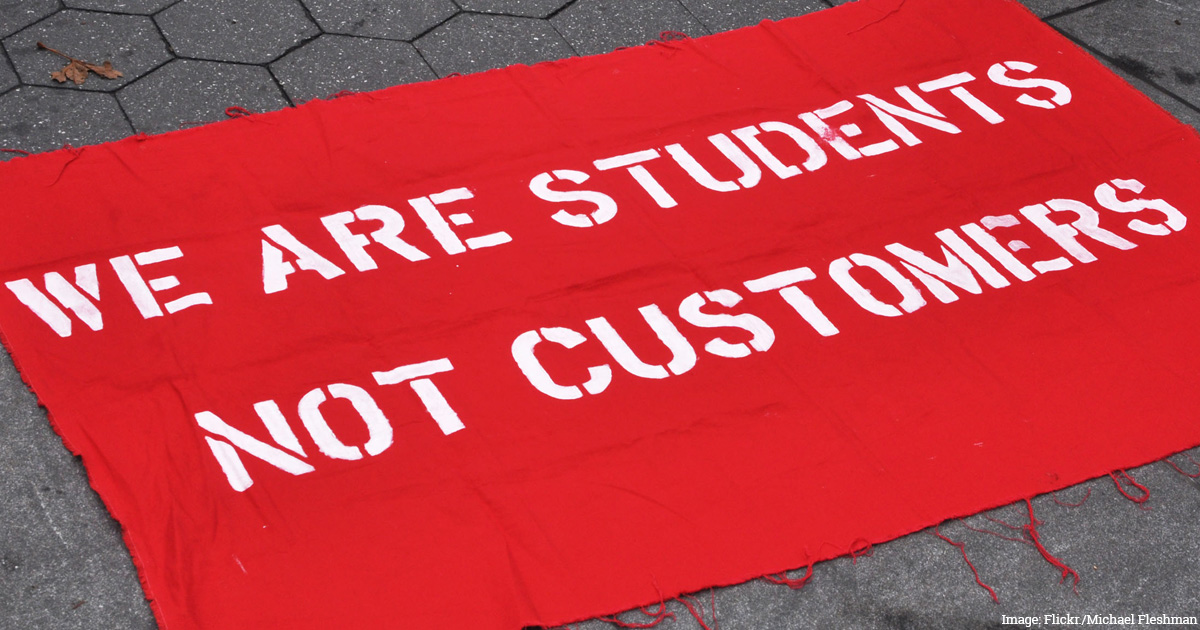How to Pay Off Student Debt on a Minimum Wage Salary

By:
A college education is increasingly important for individuals entering the workforce. But as many have already learned, a degree doesn't guarantee a well-paid job after graduation.
 Stocksy/Lumina - stocksy.com
Stocksy/Lumina - stocksy.com
About 272,000 Americans who earned a Bachelor's degree or higher worked minimum wage jobs in 2015, according to the Bureau of Labor Statistics. That can make it more difficult to afford the basics — let alone pay off student loan debt. The average borrower graduated with $31,000 in student debt in 2015.
ATTN: asked a student loan expert Mark Kantrowitz how he'd advise borrowers in this situation. This interview has been lightly edited for length and clarity.
.jpg?auto=format&crop=faces&fit=crop&q=60&w=736&ixlib=js-1.1.0) Stocksy/Alexey Kuzma - stocksy.com
Stocksy/Alexey Kuzma - stocksy.com
ATTN: What would you recommend to a recent graduate who's earning a minimum wage salary and struggling to pay off their student debt?
Mark Kantrowitz: The first thing is to talk to their lender to ask what options they have. Ignoring the problem only makes it worse. A lot depends on the nature of the problem. Is it a short-term financial difficulty, or is it a long-term financial difficulty.
ATTN: Let's say it's a short-term problem, then.
MK: If it's a short-term financial difficulty, there are temporary suspensions of the obligations where you repay your debt called deferments and forbearances. Interest may continue to accrue, but you won't have to make payments. You can have that interest capitalized, which adds it to the loan balance. Not a good idea to do this long-term, but if you just graduated, you don't have a job yet, but you think you'll get a job within a few months, it's a reasonable option. There's a six-month grace period after you graduate to give you enough time to get that job.
 Stocksy/Sean Locke - stocksy.com
Stocksy/Sean Locke - stocksy.com
ATTN: What about something more long-term, like being stuck in a minimum wage job?
MK: If you have a more long-term financial difficulty — you're employed, you don't have any prospects for increasing the income, then there are alternate repayment plans, where you're making payments — the payments are almost always greater than the interest that's accruing, so you're not getting a larger loan. You're making progress in paying back debt, albeit slower progress.
ATTN: What are the most common alternative repayment plans?
MK: The two main ones that people use are an income-driven repayment plan or an extended repayment plan.
Income-driven repayment bases your monthly payment on a percentage of your discretionary income, and discretionary income is defined as your adjusted gross income minus 150 percent of the poverty line. What that means is if you're income is below 150 percent of the poverty line, your monthly payment will be zero, and that counts as a payment. After 20 or 25 years, any remaining debt will be forgiven — but that forgiveness is treated as taxable income, so you'll be substituting a smaller tax debt for the education debt.
Extended repayments stretches out the term of your loan to 25 or as much as 30 years, and that reduces the monthly payment. In fact, the income-driven repayment plans are effectively doing the same thing; they reduce the monthly payment by stretching out the term of the loan.

ATTN: What are some common mistakes that borrowers should avoid?
MK: If you have a long-term financial problem and you chose the deferment or forbearance, those have three-year limits. You're just going to dig yourself into a deeper hole, because the interest that accrues will make your debt bigger, making the problem more challenging not less challenging. You want to be at least paying the interest that accrues so that your debt doesn't get bigger. That's called a partial forbearance; it's not available on the federal loans, it is available on the private loans. But with the federal loans, nothing stops you from making payments while you're on forbearance.
Another common problem that I've seen people engage in is they ignore the problem. They don't read their mail, they don't answer their phone, they don't call anybody. They just hope that if they ignore the problem, it'll go away. Or that the president would wave a magic want and make the debt disappear, which just isn't going to happen. You need to face it head-on, and there are ways of dealing with it.
